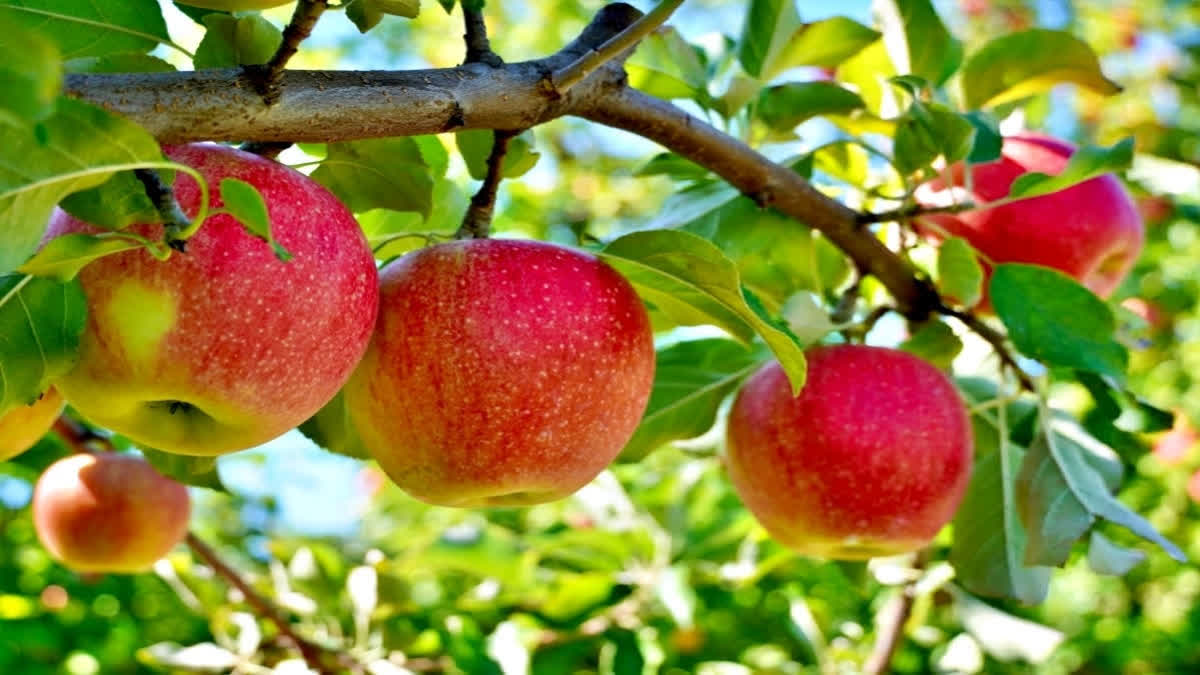Srinagar: As Kashmir valley is reeling under power shortages in the freezing winter, the apple produce, which is one of the mainstays of the horticulture economy, is safe in the cold storage units which are being supplied with uninterrupted power supply.
Hundreds of farmers store their produce in these storages with the aim to earn more profit from it during the off-season months. Apple crop is harvested in the Valley from July to October. Many growers sell the harvest during this season, however, many now prefer to keep it in storage for higher rates.
Bashir Ahmad Naik, President of the Jammu and Kashmir Integrated Cold Chain Association (JKPICCA) said the Cold Storage units need an uninterrupted power supply to all industrial estates with a special focus on the Industrial Growth Centre (IGC) Lassipora and Industrial Estate Aglar.
IGC Lassipora and Aglar, situated at the border of Pulwama and Shopian districts of southern Kashmir, have 28 operational Cold Storage units whose capacity is 1.4 lakh MT.
"This reliable power provision has been crucial in maintaining the operational efficiency and productivity of industrial units in the region," Naik told ETV Bharat.
At present, Kashmir Valley has 44 Cold Storage Units set up in the Sopore, Pulwama, and Sopore in Baramulla districts which are rich in production of apples and other fruits. Vegetable farming is also increasing as many farmers in rural belt have converted their agricultural land into huge vegetable gardens.
Officials said that each unit has a capacity of storing apples between 2000 to 5000 MT. The 44 units have the capacity to store 2.06 lakh Metric Tones (MT) and the horticulture department is aiming to increase the storage to 5 lakh MT.
In the absence of electricity, the unit owners are compelled to use diesel-run generators which put an additional burden in their fuel bills. Owners said for an hour, a generator uses more than 40 litres of diesel.
However, the continuous electricity supply has ensured the smooth functioning of these units. "We are getting uninterrupted electricity supply which is helping our units run smoothly," Ashiq Shangloo, a Cold Storage Unit owner, told ETV Bharat.
The cold storage facilities are given to people under subsidised financial policies and the purpose of establishing these units is meant to decrease post-harvest losses of apple and fruit growers.
Kashmir produces 20 to 30 lakh MT of apples every year and with farmers adopting the latest high-density apple farming, the productivity is set to increase in coming years. The Cold Storage unit holders are demanding an amnesty program for the commercial sector to provide significant relief to businesses that have been struggling with outstanding dues.
"The amnesty would not only benefit industrial units but also contribute to increased revenue generation and improved recovery of dues for the power department," Naik said.
He was referring to the amnesty scheme of the Jammu and Kashmir government by which domestic consumers having unpaid bills for years are exempted from interest rates and other levies on the bills and asked to pay the primary amount in 12 instalments. But commercial consumers are not included in this scheme.
The power supply in winter months remains disruptive and outages are frequent. Kashmir Power Distribution Company Limited in a statement said that it is supplying more than 1500 Mega Watts of electricity during peak hours. Though the demand remains at 2600 MW but to due increased load and usage of electricity during winter, officials say, the limited electricity is supplied as per a curtailment schedule due to which consumers face outages.
It said that this winter the government has supplied more electricity to consumers than the previous year.
Giving figures of the supply, it said from November 16 to 30, the average supply reached 1,388 MW, up from 1,489 MW during the previous year, marking an additional power supply of 101 MW. Similarly, from December 1 to 4, they provided 1,465 MW against last year’s 1,525 MW, resulting in another increase of 60 MW. The trend continued from December 4 to 8, with power logs showing 1,450 MW supplied against last year’s 1,595 MW, yielding 145 MW more.



